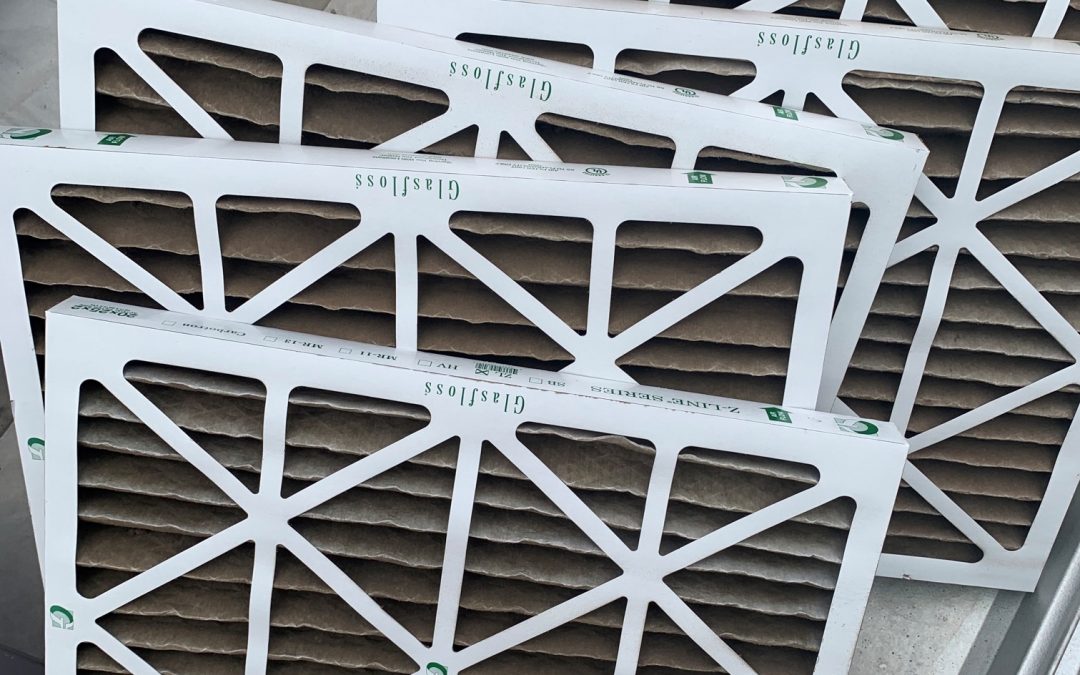Everyone knows that springtime in West Texas is very windy and dusty. With this in mind, it is vital to preserve and improve the quality of your indoor air. While we can’t control what’s in the air outside, we can improve the breathable air inside to lower the risk of respiratory issues from airborne allergens, decreasing the risk of irritation to our eyes, nose, and throat. Not only that, but improving your indoor air quality keeps your home and furniture clean for longer, and preserves the life of your HVAC units.
Did you know that heating and air conditioning filtration is the first line of defense when it comes to preserving and improving indoor air quality? Ultimately, choosing and changing your filter regularly is a relatively cheap and easy way to ensure that your indoor air quality is preserved. When it comes to air filters, though, choosing the right one can feel overwhelming. There are several types of air filters:
- Fiberglass Air Filters – These filters are simultaneously the most affordable and the lowest straining filters. They are better for protecting your HVAC unit than screening dust and pollutants.
- Pleated Air Filters – made of polyester fiber and cotton folds, these disposable filters are effective in filtering dust and pollutants. Pleated filters with more pleats offer better filtering performance
- Washable Air Filters – These filters offer good filtration while also having a long life. These filters can be regularly removed, washed, and reused. They are available at a higher cost, but can provide financial savings in the long run.
- Electrostatic Air Filters – These filters work like dust magnets, using static electricity to attract dirty air and ensure it sticks to the filter. Coarse fibers of the filter are electrostatically charged and gather particles over time. Electrostatic filters are also washable and should be maintained regularly to preserve their efficacy.
- HEPA Filters – High Efficiency Particulate Air filters offer the highest filtration performance and are best used in areas containing people prone to respiratory difficulties. These filters can screen 99.97% of contaminants and are recommended by the US Department of Energy, although due to their potential for needing to be replaced and high cost, they’re rarely used in residential settings. It’s also important to note that if HEPA filters are not properly sized they can actually restrict air flow, decreasing the efficiency of your HVAC unit.
- UV Air Filters – UV filters use ultraviolet light to kill bacteria and viruses. They need to be used in conjunction with another filter type as they do not filter dust and debris particles that can be harmful to your AC unit, but they are great at combating micro-organisms.
Ultimately, your HVAC unit can last about 15 years at the maximum. Maintaining and repairing your unit will help extend its life. Common issues with older units include:
- Leaking/Old Duct Work – This can allow dust, allergens, particles, and even small animals in some cases to enter the ventilation system, bypassing the filters and leading to poor air quality. Older ductwork may also be made of materials that have fallen out of favor and can have pockets of built-up debris and pet hair.
- Improperly working fans – This can lead to air flow issues and can cause the system to run inefficiently. Fan issues can be caused by broken fan blades, debris blocking the fan housing, or much more serious issues.
- Unusual Humidity Changes – Your HVAC unit helps to maintain the proper level of humidity in your home or business. Improper levels of humidity can lead to mold and bacteria growth, causing your air quality to become dangerous to residents or customers
- Old wiring failure – These issues are extremely serious and can lead from smoke entering your ventilation system to full building fires. Making sure your HVAC unit is up to date and functioning efficiently is necessary to avoid these issues.
SPECS Refrigeration is here to help you and to ensure that your indoor air quality is the best it can be. To learn more about air filtration, please get in touch with us today. Our team is on standby to help you!


Recent Comments